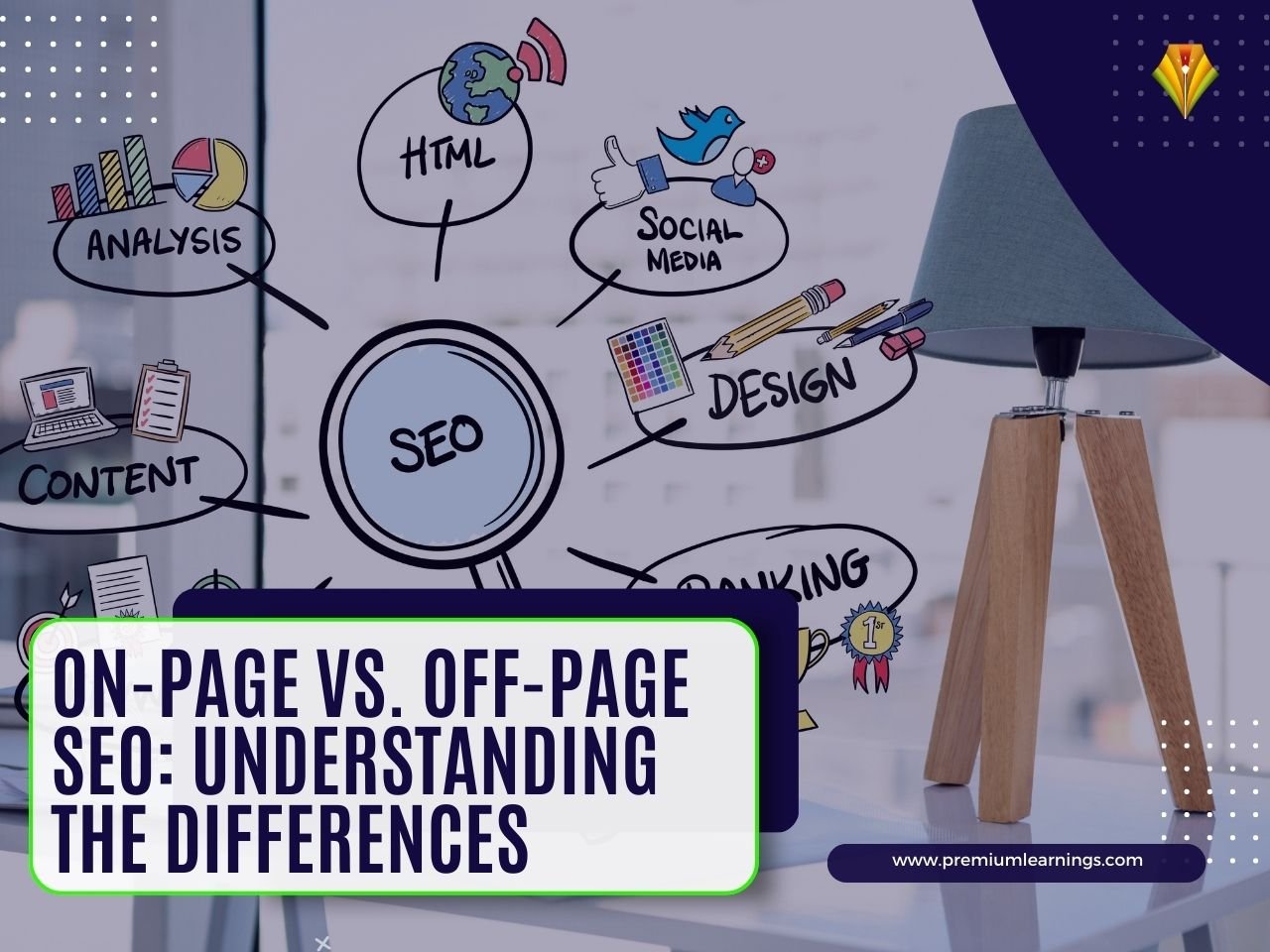Digital marketing’s key component of SEO is helping websites rank higher in search engine results pages (SERPs) and draw in more targeted traffic. On-page SEO and Off-page SEO are the two main subcategories of SEO. Both are crucial for getting high search engine results, but they serve different purposes and call for various strategies. We will examine the distinctions between on-page and off-page SEO in this blog post, as well as how to balance them for the greatest outcomes. Understanding the difference between On-page and Off-page SEO is essential for creating an effective SEO strategy, regardless of whether you work as a website owner, marketer, or SEO expert.
What is On-Page SEO ?
On-page SEO refers to the optimization of individual web pages in order to rank higher and earn more relevant traffic in search engines. On-page optimization includes elements like title tags, meta descriptions, header tags, keyword usage and internal linking.
What is Off-Page SEO ?
Off-page SEO refers to the activities that are performed outside of the website to improve its visibility and ranking in search engines. This includes tactics such as building backlinks from other websites, promoting your website on social media, and guest posting on other websites.
Difference Between On-page SEo And Off-Page SEO
The difference between on-page and off-page SEO is that on-page SEO focuses on optimizing individual pages on your website, while off-page SEO focuses on boosting your website’s visibility and credibility in the eyes of search engines through external sources.
Here is the more indetail information about the Difference between On-page SEO and Off-page SEO
1.Focus: On-page SEO focuses on optimizing individual web pages, while off-page SEO focuses on boosting the visibility and credibility of the website as a whole.
2.Control: On-page SEO can be fully controlled by the website owner, as it only involves optimizing the content and structure of the website. Off-page SEO, on the other hand, requires the involvement of external sources and can be more difficult to control.
3.Content: Title tags, meta descriptions, header tags, keyword usage, and internal linking are all part of on-page SEO, which includes improving the content of the website. On the other hand, off-page SEO focuses on producing excellent content that attracts links from other websites and social media.
4.Tactics: The structure and content of the website, as well as its speed and mobile friendliness, can all be optimised using on-page SEO techniques. Link building, social media promotion, and influencer outreach are examples of off-page SEO strategies.
5.Importance: For websites to rank highly in search engines, both on-page and off-page SEO are crucial. Off-page SEO offers proof that other websites and users find your material important and trustworthy while on-page SEO gives search engines a basis to grasp what your pages are about.
It is important to concentrate on both technical optimization and content production in order to effectively balance both on-page and off-page SEO. Off-page SEO can show search engines that other websites and users believe your material to be valuable and trustworthy while on-page optimization can help search engines comprehend what your pages are about and how they should rank in search results.
In conclusion, a thorough SEO plan should include both on-page and off-page SEO. Off-page SEO is on increasing the general visibility and authority of your website, whereas on-page SEO concentrates on optimising specific pages. It’s crucial to balance both on-page and off-page SEO for the best results.
Keep Learning :
To enhance your knowledge consider attending our Growth Hacking Sessions. Register for the webinar now by clicking on the link below.
https://premiumlearnings.com/contact/
You can also download premium learning’s app from the link below
https://play.google.com/store/apps/details?id=com.premiumlearnings.learn&hl=en


